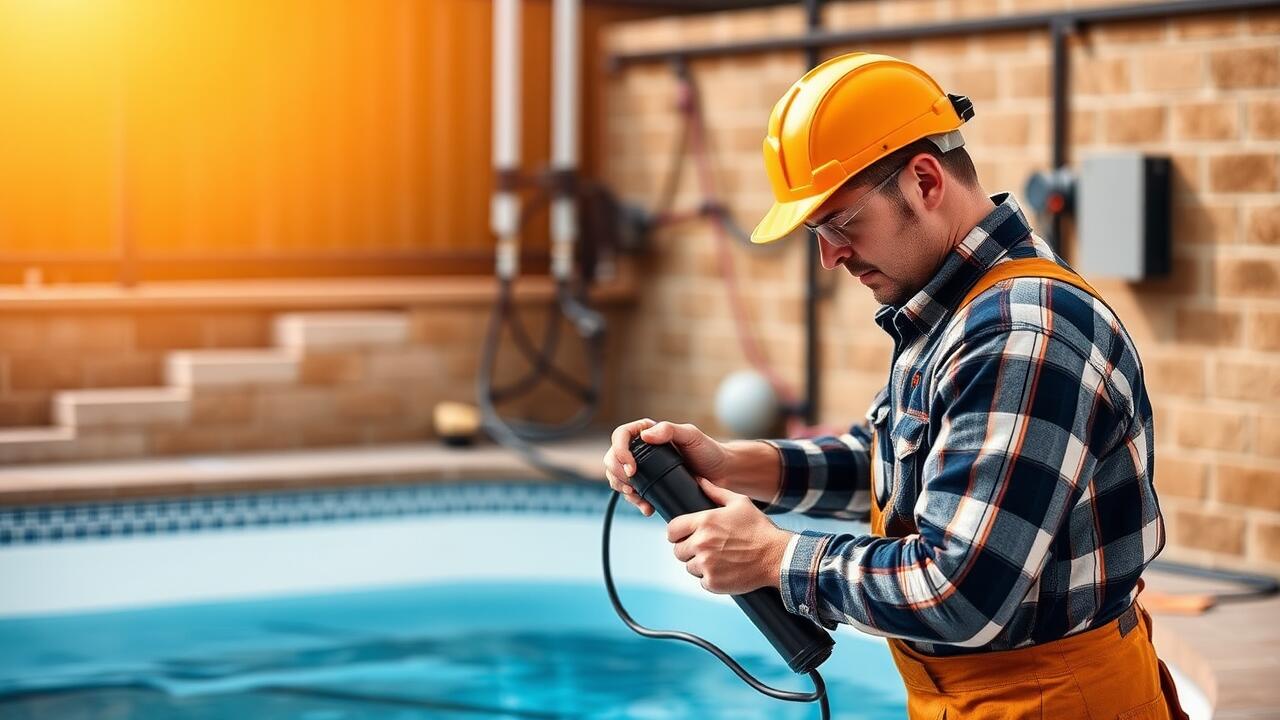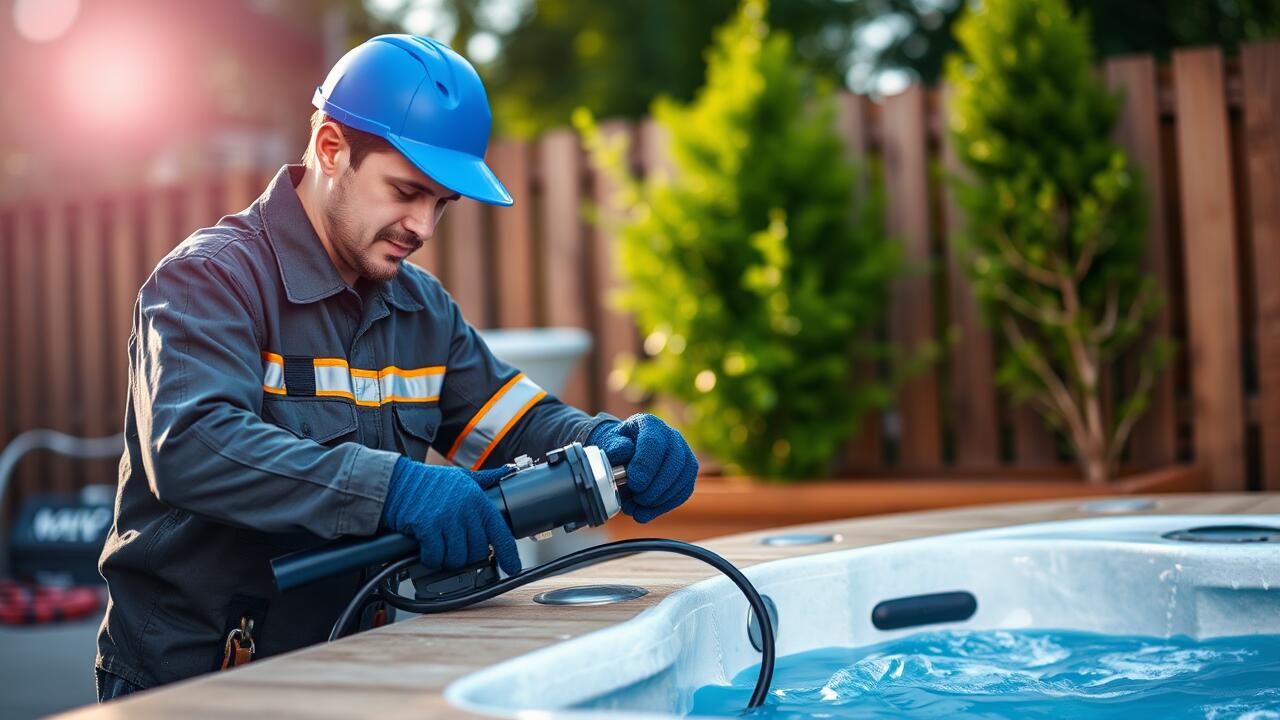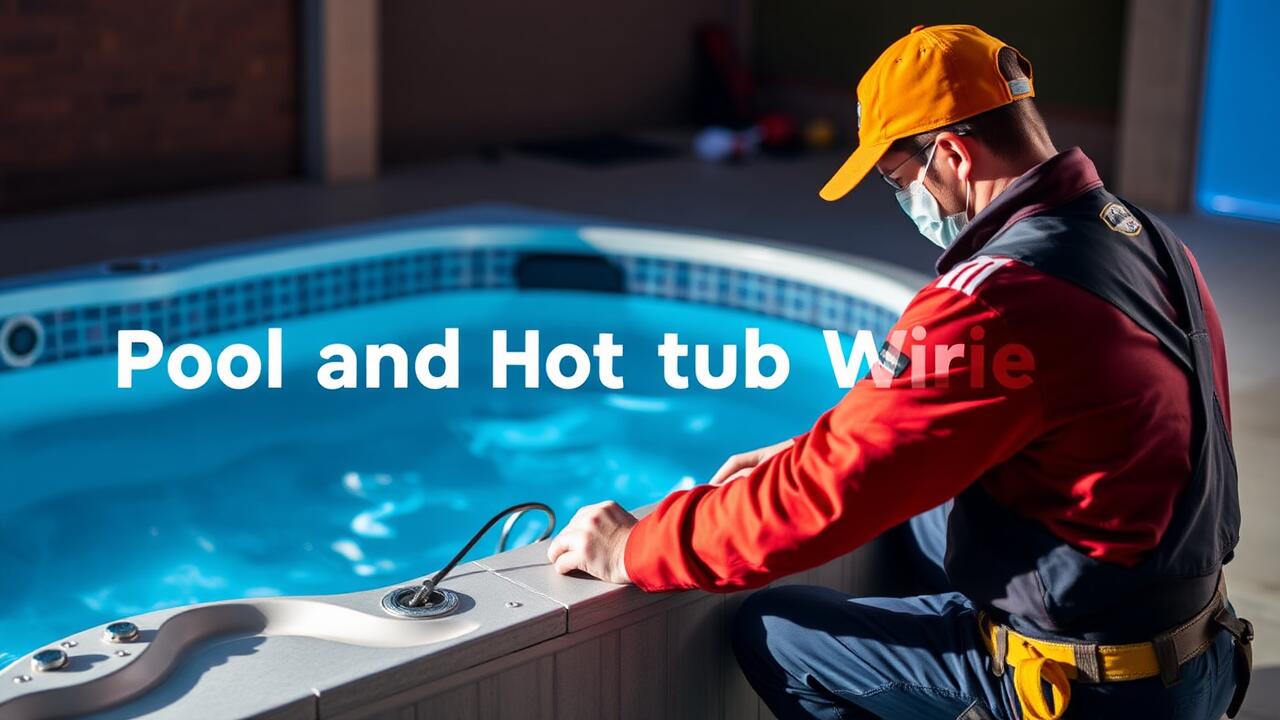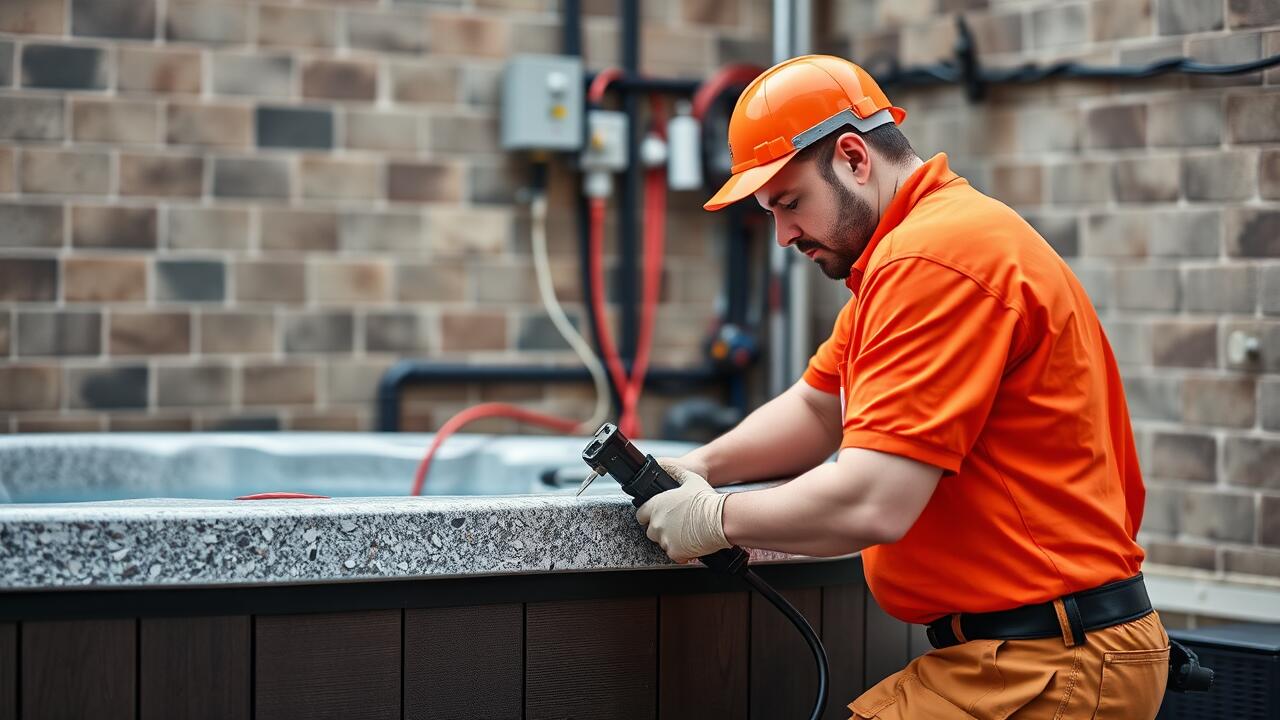
Bonding and Grounding in Pool Areas
Proper bonding and grounding are essential for ensuring safety in pool areas. Bonding connects different metal components within the pool to eliminate voltage differences that could pose an electric shock hazard. All metallic parts, including pool ladders, handrails, and lighting fixtures, must be bonded to a common ground to prevent dangerous electric currents from accumulating. This practice creates a safe environment for swimmers and helps to reduce the risk of electrical accidents.
Grounding is equally important as it provides a path for electrical currents to safely dissipate into the earth. In areas like Kingwood, Houston, where pool and hot tub wiring is often subject to environmental factors, sticking to rigorous grounding standards is crucial. Adequate grounding ensures that any stray voltage is directed away from the water and its users. Hence, compliance with local regulations and national electrical codes is vital to maintaining safety in pool and spa installations.
Preventing Electrical Hazards
Electrical hazards around pools and spas remain a significant concern for homeowners. Proper installation and maintenance of electrical systems can greatly reduce risks. It is essential to adhere to the National Electrical Code (NEC) guidelines, especially concerning GFCI (Ground Fault Circuit Interrupter) protection. These devices help prevent electric shock by shutting off the power when they detect an imbalance between incoming and outgoing current. Ensuring that all electrical connections are watertight is another critical factor in preventing potential hazards.
Regular inspections of electrical equipment and wiring are vital for maintaining safety. Homeowners should check all outlets, circuits, and devices associated with their pools and spas to ensure they are functioning correctly. Professional services specializing in Pool and Hot Tub Wiring in Westchase, Houston, can assess systems for compliance with local regulations. This proactive approach not only protects individuals using the pool but also enhances the longevity of electrical components linked to the water features.
Maintenance of Electrical Systems
Regular maintenance of electrical systems is crucial to ensure safety and compliance with local regulations. Homeowners should schedule routine inspections of all wiring and components associated with their pools and spas. Issues like frayed wires, corrosion, and loose connections can pose serious hazards. Keeping these systems in good working order prevents accidents and maintains the overall functionality of your pool or hot tub.
For those considering upgrades, understanding Pool and Hot Tub Wiring in Montrose, Houston, is essential. Modern systems require adherence to specific electrical codes to protect users. Investing in high-quality materials and professional installation enhances safety and ensures longevity. Regular maintenance checks can identify potential problems early, allowing for timely repairs and compliance with evolving safety standards.
Regular Checks for Safety and Functionality
Regular maintenance and checks of electrical systems in pools and spas are vital for safety and functionality. Ensuring that all connections are secure prevents accidental disconnections that could lead to malfunctions. Inspecting the condition of wiring and components not only enhances longevity but also minimizes the risk of electrical hazards. Each component, from pumps to lights, should be examined periodically to avoid unexpected failures over time.
When considering Pool and Hot Tub Wiring in Bellaire Junction, Houston, attention to detail is essential. Regular inspections should include testing ground fault circuit interrupters (GFCIs) to confirm that they function correctly. This quick test can help prevent electrical shocks and other dangerous situations. Additionally, verifying that all equipment meets local electrical codes ensures compliance and fosters a safer swimming environment.
Converting an Existing Pool or Spa
Converting an existing pool or spa involves careful consideration of both safety and compliance with local electrical codes. Any modifications made to the electrical systems must adhere to the National Electrical Code (NEC) standards, as well as local regulations specific to Houston. This not only ensures the safety of the installation but also guarantees that the system operates efficiently and effectively. Professionals should evaluate the existing wiring to determine if upgrades are necessary to support new equipment or features.
When upgrading Pool and Hot Tub Wiring in Bellaire Junction, Houston, it is essential to account for the specific demands of modern systems. New pumps, heaters, and lighting options often require different voltages or amperage levels than those in older installations. Conducting a thorough assessment of the current electrical infrastructure can help identify any necessary modifications. This process should involve licensed electricians who specialize in pool and spa installations to ensure that all work meets safety regulations.
Upgrading Electrical Systems for Compliance
Upgrading electrical systems to meet current safety standards is crucial for any pool or spa. Older installations often lack proper grounding and bonding, which increases the risk of electrical shock. Ensuring that your electrical systems comply with the National Electrical Code (NEC) is essential for protecting users and preventing accidents. Professionals can assess existing wiring and make necessary modifications, which may include replacing outdated components and reinforcing the grounding system.
For residents in Greenspoint, Houston, understanding the specific requirements for Pool and Hot Tub Wiring in Greenspoint, Houston, can help facilitate a smooth upgrade process. Local regulations may dictate particular installation methods and materials to enhance safety. Engaging with certified electricians familiar with these guidelines ensures that your pool or spa meets all compliance standards while providing peace of mind for users.
FAQS
What are the key bonding and grounding requirements for pool areas in Houston?
In Houston, pool areas must comply with local codes that require proper bonding and grounding to prevent electrical hazards. This includes ensuring that all metal parts, such as ladders and lighting fixtures, are securely bonded to the grounding system.
How can I prevent electrical hazards around my pool or spa?
To prevent electrical hazards, ensure that all electrical installations are performed by a qualified electrician, use ground-fault circuit interrupters (GFCIs) for all pool-related circuits, and regularly inspect and maintain your electrical systems and equipment.
What are the recommendations for maintaining electrical systems in pool and spa areas?
Regular maintenance of electrical systems should include checking for wear and tear, ensuring all electrical connections are secure, inspecting for corrosion, and testing GFCIs to ensure they are functioning correctly.
How often should I conduct safety checks on my pool and spa's electrical systems?
It is advisable to conduct safety checks at least once a year, or more frequently if you notice any signs of wear, malfunction, or if there have been significant weather events that could affect the electrical systems.
What should I consider when converting an existing pool or spa?
When converting an existing pool or spa, you should consider upgrading the electrical systems to comply with current safety codes, ensuring proper bonding and grounding are in place, and consulting with a licensed electrician to assess the necessary changes for compliance.




